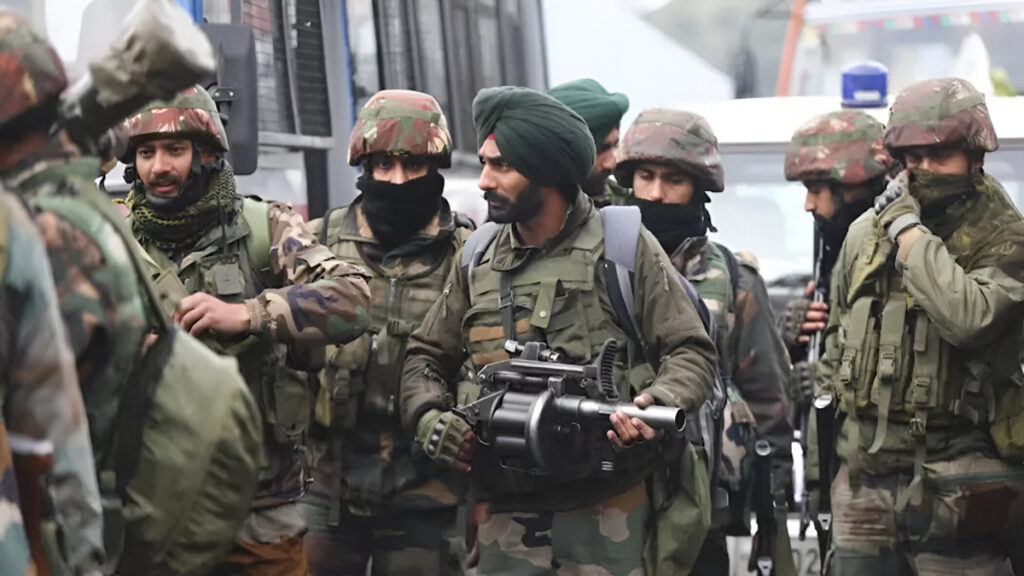Now Reading: Pakistan Army Suffers Major Blow 12 Soldiers Killed in Khyber-Pakhtunkhwa Suicide Attack
-
01
Pakistan Army Suffers Major Blow 12 Soldiers Killed in Khyber-Pakhtunkhwa Suicide Attack
Pakistan Army Suffers Major Blow 12 Soldiers Killed in Khyber-Pakhtunkhwa Suicide Attack

In a devastating blow to Pakistan’s security forces, a suicide car bomb attack claimed the lives of 12 Pakistani Army soldiers in the restive Khyber-Pakhtunkhwa province on Tuesday night. The attack, which took place in the Bannu district, has once again highlighted the ongoing security challenges faced by the country.
The Inter-Services Public Relations (ISPR), the military’s media wing, confirmed the incident in a statement. According to the ISPR, the attack occurred when a suicide bomber rammed his explosive-laden vehicle into a joint security checkpoint in the Malikhel area. The explosion resulted in the collapse of a portion of the checkpoint’s perimeter wall and caused significant damage to the surrounding infrastructure.
In the ensuing firefight, six militants were also killed, the ISPR said. However, the attack left 12 soldiers dead and several others wounded. The injured soldiers were promptly evacuated to a nearby hospital for medical treatment.
A breakaway faction of the Pakistani Taliban, known as the Hafiz Gul Bahadur group, claimed responsibility for the attack. 1 The group has been active in the region for several years and has carried out numerous attacks against security forces and civil.
The attack has sparked widespread condemnation from across Pakistan. Political leaders, civil society activists, and ordinary citizens have expressed their grief and anger over the incident. Many have also raised questions about the government’s counterterrorism strategy and the security situation in the country.
This latest attack comes amid a surge in militant activity in Pakistan’s northwestern regions. In recent months, there have been a number of high-profile attacks, including the killing of several security personnel and civilians. The resurgence of militancy has raised concerns about the country’s security and stability.
The Pakistani Taliban, also known as Tehreek-e-Taliban Pakistan (TTP), is a militant group that aims to impose strict Islamic law in Pakistan. The group has been fighting against the Pakistani government for over a decade. The TTP has been responsible for numerous terrorist attacks, including suicide bombings, targeted killings, and kidnappings.
The Pakistani government has been struggling to contain the TTP and other militant groups. Despite numerous military operations and counterterrorism efforts, the militants continue to carry out attacks. The government’s inability to effectively address the security challenges has led to widespread criticism and frustration.
Also Read: Bitcoin Soars to Record High What You Need to Know
The attack on the security checkpoint in Khyber-Pakhtunkhwa is a stark reminder of the ongoing threat posed by militant groups in Pakistan. The incident has also highlighted the need for a comprehensive and effective counterterrorism strategy to address the root causes of militancy and to prevent future attacks.
The Pakistani government must take urgent steps to improve security and intelligence capabilities, strengthen border control, and address the socio-economic grievances that fuel extremism. It is also important to engage with the militant groups through dialogue and negotiations to find a peaceful solution to the conflict.
The loss of 12 soldiers in the attack is a significant setback for the Pakistani military. The incident has also raised concerns about the morale of the troops and their ability to effectively combat the militant threat.
The Pakistani government must ensure that the families of the fallen soldiers are provided with adequate compensation and support. It is also important to recognize the sacrifices made by the security forces in the fight against terrorism.
The attack in Khyber-Pakhtunkhwa has once again brought to the forefront the complex security challenges facing Pakistan. The government must take decisive action to address these challenges and restore peace and stability to the country.









